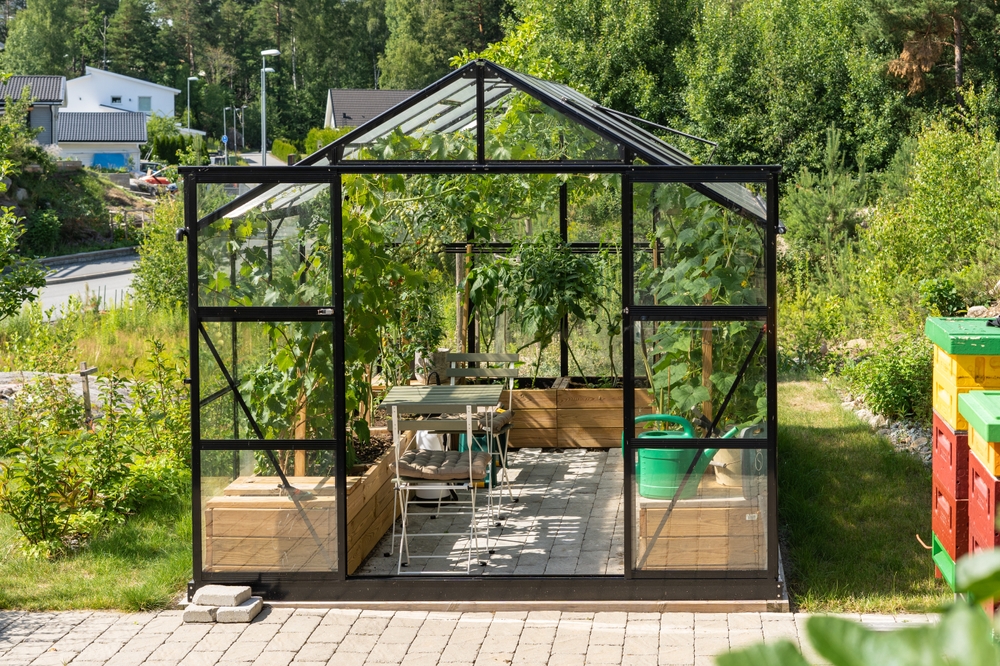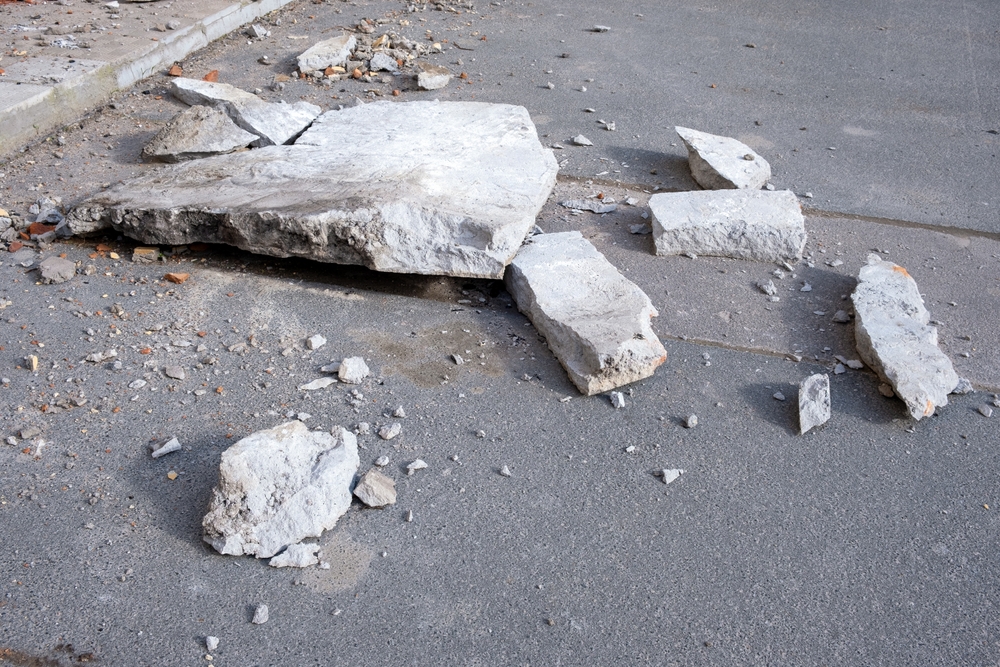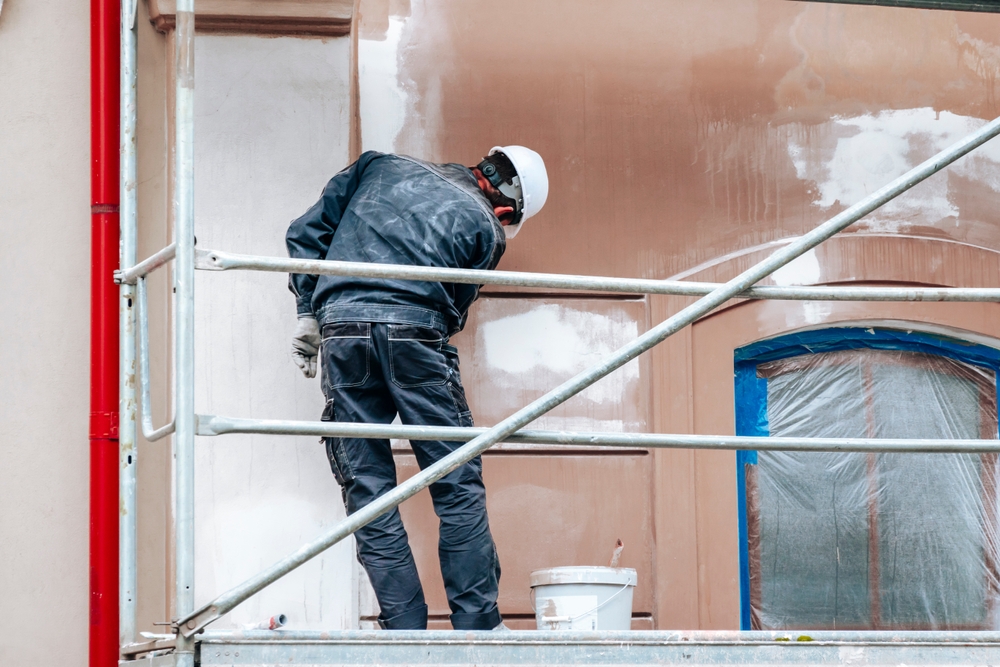June 6, 2024 - Benjamin Ehinger
General Contractors Need Dumpsters: The Key to Efficient Job Site Management
CALL NOW 844-762-8449
In the dynamic world of construction and development, general contractors are the pivot point for ensuring that projects are executed efficiently and safely. An often overlooked but critical component of managing a construction site is waste management. To maintain a safe and clean work environment, dumpsters are essential for the disposal of materials and debris generated throughout the construction process. Your choice in dumpster rental can have a significant impact on project workflow and site organization.
Choosing the right dumpster size is just as crucial as the actual need for one. You must consider the scope of the project and the types of waste your site will produce to make an informed decision. For smaller projects, a 10-yard dumpster might suffice, while larger constructions will likely require 30-yard dumpster or even 40-yard containers. Renting a dumpster can streamline the waste management process, avoid potential hazards, and can ultimately save time and money with proper planning.
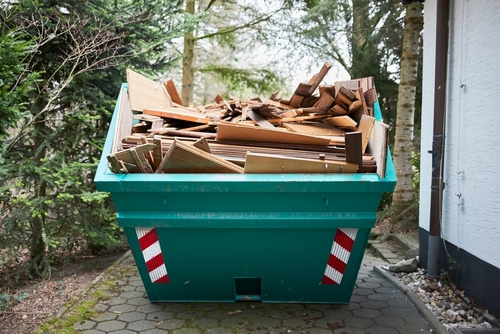 When undertaking construction or landscaping projects, you’ll encounter a variety of waste materials. Dumpsters streamline the process, accommodating everything from roofing materials to yard debris.
When undertaking construction or landscaping projects, you’ll encounter a variety of waste materials. Dumpsters streamline the process, accommodating everything from roofing materials to yard debris.
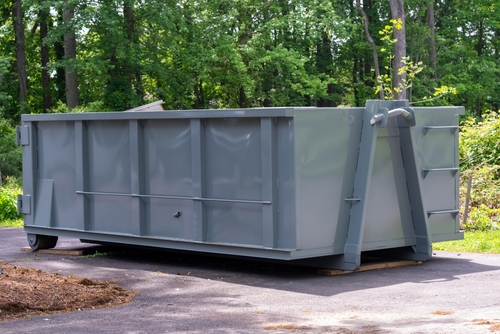 As a general contractor, understanding the nuances of dumpster rental pricing is pivotal in maintaining project budgets and increasing efficiency on construction sites.
As a general contractor, understanding the nuances of dumpster rental pricing is pivotal in maintaining project budgets and increasing efficiency on construction sites.
Key Takeaways
- Dumpsters are indispensable for maintaining cleanliness and safety at construction sites.
- Selecting an appropriately sized dumpster is essential for efficient waste management.
- Proper planning of waste disposal can lead to significant savings in time and resources.
Why General Contractors Require Dumpsters
As a general contractor overseeing construction or renovation projects, you’re responsible for the continuous flow of tasks and ensuring everything on the jobsite runs smoothly. An essential aspect of achieving this is managing various forms of waste generated. It’s not just about keeping the site clean; it’s also about maintaining productivity, adhering to legal standards, and handling waste in an efficient manner.Construction Debris Management
When you take on construction projects, whether they involve demolition or building from the ground up, you generate a substantial amount of waste. Common types of construction debris include:- Wood and lumber
- Metal scraps
- Concrete
- Drywall
- Tiling
Efficiency in Waste Removal
Efficient waste removal is critical to your project’s timeline and labor allocation. A roll-off dumpster serves as a centralized location for all waste, which simplifies the process of waste removal. This efficiency translates into direct benefits:- Reduced labor costs: Workers spend less time disposing of debris.
- Streamlined workflow: Less clutter means easier maneuverability and fewer obstructions.
- Enhanced productivity: Workers can focus on their tasks rather than waste management.
Compliance with Regulations
Your work extends beyond mere construction; it also encompasses adherence to a set of rules and regulations. Proper waste management using dumpsters is essential for:- Environmental compliance: Proper disposal of waste materials helps prevent pollution and land degradation.
- Legal requirements: Adherence to local, state, and federal regulations regarding waste disposal avoids potential fines and legal complications.
Choosing the Right Dumpster Size
Selecting an appropriate dumpster ensures efficiency and cost-effectiveness for your project. Accurate sizing prevents overage charges and avoids delays due to insufficient waste capacity.Understanding Dumpster Sizes
Dumpsters come in a variety of sizes measured in cubic yards, which directly correspond to their capacity. Here’s a quick overview of the common options:- 10 yard dumpster: This compact option measures roughly 12 feet long, 8 feet wide, and 4 feet high. It’s suitable for smaller cleanout jobs or minor remodeling tasks.
- 20 yard dumpster: With dimensions near 22 feet long, 8 feet wide, and 4.5 feet high, it’s well-suited for medium-scale projects involving room renovations or bulky material disposal.
- 30 yard dumpster: This larger dumpster, typically around 22 feet long, 8 feet wide, and 6 feet high, handles major renovations or new construction debris.
- 40 yard dumpster: The largest standard size, approximately 22 feet long, 8 feet wide, and 8 feet high, is designed for the most substantial waste removal needs in commercial construction.
Matching Dumpster Size with Project Scope
For general contractors, matching the dumpster size with the project’s scale is crucial.- For a basic home cleanout or small remodeling task, a 10 yard dumpster often suffices.
- A 20 yard dumpster is typically recommended for more extensive renovations, such as a kitchen or a full-floor renovation.
- For new home builds or large-scale demolitions, a 30 or 40 yard dumpster may be necessary to handle the volume of waste.
Types of Waste Handled by Dumpsters
 When undertaking construction or landscaping projects, you’ll encounter a variety of waste materials. Dumpsters streamline the process, accommodating everything from roofing materials to yard debris.
When undertaking construction or landscaping projects, you’ll encounter a variety of waste materials. Dumpsters streamline the process, accommodating everything from roofing materials to yard debris.
Roofing and Construction Materials
Roofing: Your roofing projects will generate waste like asphalt shingles, underlayment, and perhaps old tiles. A dumpster can hold all these materials, facilitating easy disposal.- Shingles: Typically, a 10-yard dumpster suffices for up to 20 squares of shingles.
- Tiles: For heavier roofing materials, such as tiles, a larger dumpster may be needed due to weight considerations.
- Wood: Dimensional lumber, plywood, and framing are common wood types that go into the bin.
- Concrete: Concrete should be placed in a roll-off dumpster designed to handle the weight.
- Drywall: In substantial renovations, large amounts of drywall can accumulate, but disposal is straightforward with the right dumpster size.
Yard Waste and Heavy Debris
Yard Waste Disposal: Your landscaping efforts produce organic waste such as grass clippings, shrubs, and branches.- Shrubs/Plants: These can be bundled or left loose in the yard waste dumpster.
- Soil: Note that soil can be heavy; therefore, fill the container only to the halfway point to avoid overloading.
- Concrete: For driveways or patio removal, a roll-off dumpster is apt for containing concrete slabs.
- Dirt: When clearing out space for landscaping, dumpsters that accept dirt can be used, but remember the weight restrictions.
Logistics of Dumpster Rentals
Effective logistics are crucial for ensuring your construction or roofing project stays on schedule with continuous waste management. Reliability in deliveries and pickups, along with access to both local and national dumpster services, plays a pivotal role.Scheduling Deliveries and Pickups
For seamless progress on your construction site, it’s essential to organize dumpster deliveries and pickups meticulously. Construction dumpsters come in various sizes and your choice should align with the project scale—a small roofing project may only require a 10-yard dumpster while large constructions could need a 30-yard or larger. Remember that appropriate scheduling prevents workflow interruptions. Typically, you can expect:- Same-day or next-day delivery options from local providers.
- Predetermined pickup schedules to align with your project’s timeline.
- Flexibility for urgent or unexpected needs, often through a dedicated account manager.
Navigating Local and National Services
Whether you’re dealing with a local company or a national dumpster rental provider, the goal is to find a reliable partner for your waste management needs. Local services may offer personalized attention and knowledge of area-specific regulations. In comparison, national services provide extensive coverage and standardized practices across different locations. To navigate these options:- Evaluate the reliability of the service through customer reviews or referrals.
- Determine if a dedicated account manager is available to address your site-specific concerns.
- Compare costs and services to find a reliable partner that meets local regulations and project demands.
Cost Considerations for Dumpster Rentals
 As a general contractor, understanding the nuances of dumpster rental pricing is pivotal in maintaining project budgets and increasing efficiency on construction sites.
As a general contractor, understanding the nuances of dumpster rental pricing is pivotal in maintaining project budgets and increasing efficiency on construction sites.
Factors Influencing Dumpster Cost
When you’re looking at construction dumpster rental costs, several variables come into play that can significantly affect the price. The size of the dumpster is one of the primary determinants of cost. Common sizes are:- 10-yard dumpster: Ideal for small renovation projects or medium-sized cleanouts.
- 20-yard dumpster: Suits larger residential projects or light commercial debris removal.
- 30-yard dumpster: Accommodates major construction or demolition jobs.
- 40-yard dumpster: Top choice for large-scale commercial construction work.
Maximizing Value for Contractors
To get the best value out of your dumpster rental, consider the following tips:- Assess Project Size: Choose the right dumpster size to avoid overage fees or the hassle of renting additional dumpsters.
- Plan Ahead: Schedule your rental in advance to ensure availability and avoid rush charges.
- Bundle Services: If you require multiple dumpsters or ongoing service, ask about package deals or extended rental discounts.
Additional Services and Management
When organizing a construction project, you must consider not only debris removal but also your project’s environmental impact and the comprehensive management of all waste solutions. Efficiently addressing these factors can significantly benefit your project’s workflow and sustainability objectives.Waste Diversion and Environmental Responsibility
Your commitment to environmental responsibility can be seen through waste diversion efforts on your construction site. Proper waste management includes sorting and disposing of materials in a way that reduces the impact on landfills. By opting for LEED-friendly practices, such as recycling and reusing materials, you contribute to sustainable construction initiatives.- Roll Off Dumpster Rentals: Suitable for various materials, including those from demolition projects.
- Demolition Projects: Often produce substantial debris that can be recycled or reused if sorted correctly.
- Recycling Reporting: Keeps track of the waste diverted from landfills, aiding in LEED certification.
Comprehensive Waste Solutions
Managing a construction project requires overseeing multiple components, one of which includes comprehensive waste solutions. This not only encompasses the removal of waste but also the inclusion of portable sanitation services, essential for maintaining hygiene onsite.- Portable Toilets and Hand-Washing Stations: Fundamental for meeting sanitation needs.
- Storage Containers: Securely store materials and equipment, reducing clutter and potential waste on the site.
- Account Management: An account executive will typically be assigned to your project to assist with customer service, reporting, and coordination of services like dumpster rental, portable sanitation services, and storage needs.
Frequently Asked Questions
Contractors often have unique needs when it comes to waste management on their job sites, with various factors influencing their choices in dumpster rentals. Understanding these nuances ensures effective and economical management of construction debris.What are the typical reasons contractors require dumpsters on job sites?
Your construction or renovation project inevitably generates a significant amount of waste. Contractors need dumpsters on-site for the convenient disposal of common materials like wood, drywall, and metal, as well as for maintaining a safe and efficient work environment.How does the rental process for a construction dumpster work?
When you’re ready to rent a dumpster, you’ll typically contact a rental company to discuss your project’s needs. This conversation includes selecting the appropriate size, arranging delivery and pickup times, and understanding the terms of the rental agreement. Renting from a reliable provider ensures that the dumpster arrives on time and is placed according to your site specifications.What determines the cost of renting a dumpster for a construction project?
The cost of renting a dumpster is influenced by several factors: the size of the dumpster, the length of the rental period, the location of your job site, and the type of debris you’re disposing of. Fees may be higher for heavier materials or for locations that require longer transport distances.What sizes of dumpsters are commonly used in construction and renovation?
Dumpsters for construction and renovation come in a range of sizes to match the scale of your project. For smaller renovations, 10-yard dumpsters are often suitable, whereas large-scale construction sites might opt for 30 or 40-yard dumpsters to handle the increased volume of waste materials.How is construction waste managed through dumpster rentals?
Managing construction waste efficiently involves choosing the right dumpster size and type, following best practices for waste segregation, and complying with local regulations on waste disposal. Rental companies often provide guidelines on what can be disposed of and may offer recycling services to ensure environmental responsibility.Are there specific types of dumpsters designed for heavy construction debris?
Yes, for heavy construction debris like concrete, asphalt, and dirt, contractors use roll-off dumpsters. These dumpsters are constructed to withstand the weight and are equipped with features like low sides for easier loading and a roll-off design for efficient transport to disposal facilities.RECENT BLOGS
Our Reviews
Glenda Lanier Prowell
1721758635
I have ordered an 11 yard dumpster to be delivered to my house.Lonier was extremely helpful and answered all my questions. The rate was very reasonable.
Cedric Smikle
1721660395
Amber was extremely professional and courteous. She answered all of my questions and even some that I didn’t know I needed to ask.
Cait Kaider
1721243051
I highly recommend Waste Removal USA for their responsiveness and how the staff work hard to provide exceptional customer service. They have done well by us and our clients. Thank you!
Easom Family
1721223306
Louiner Pierre-Louis Is awesome! Did a great job. Will definitely be using this same company for all my dumpster needs because of his awesome customer service! Thank you!!!
tabitha Vazquez
1720539988
Wonderful and fast customer service!
LATEST BLOGS
